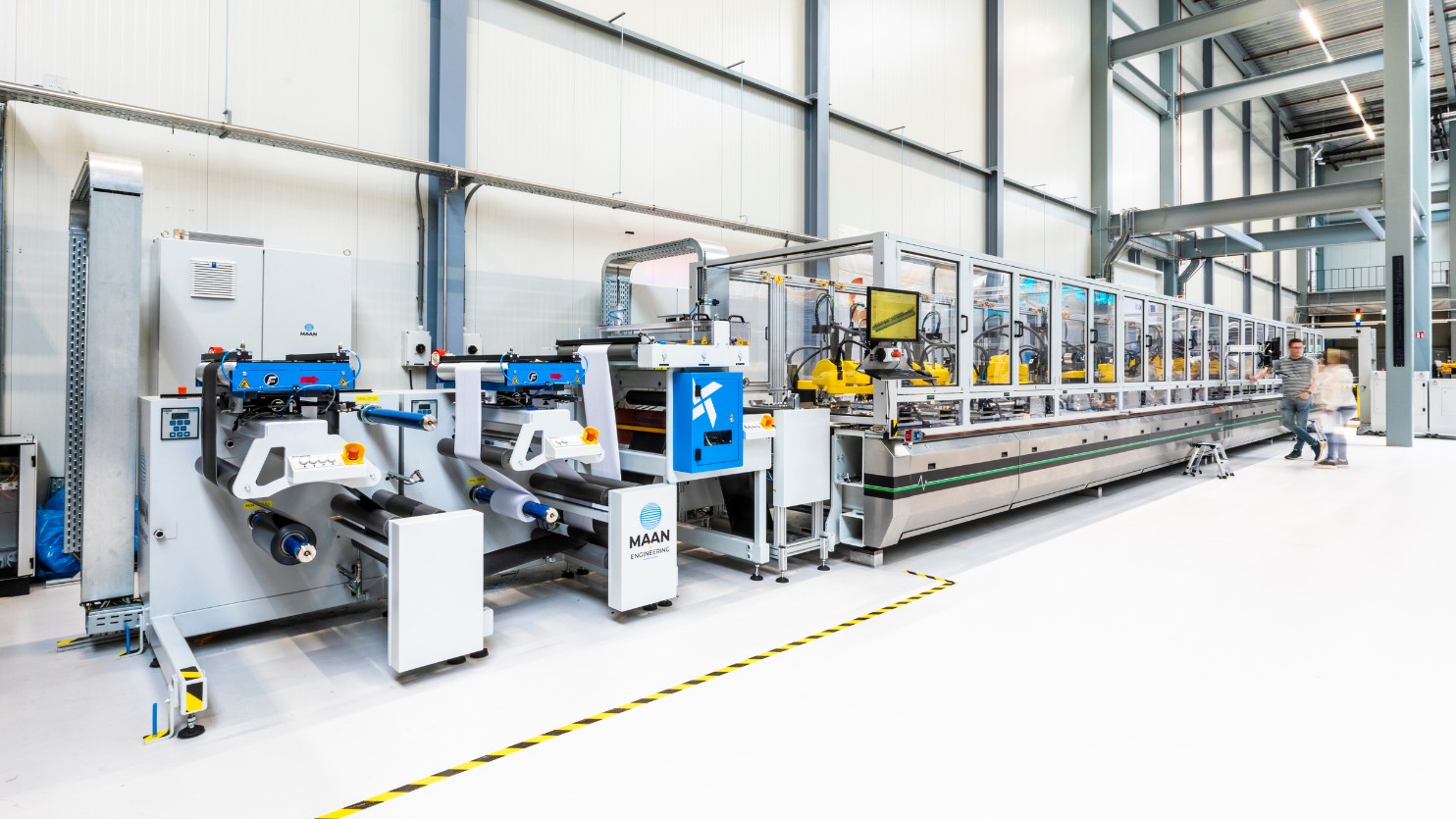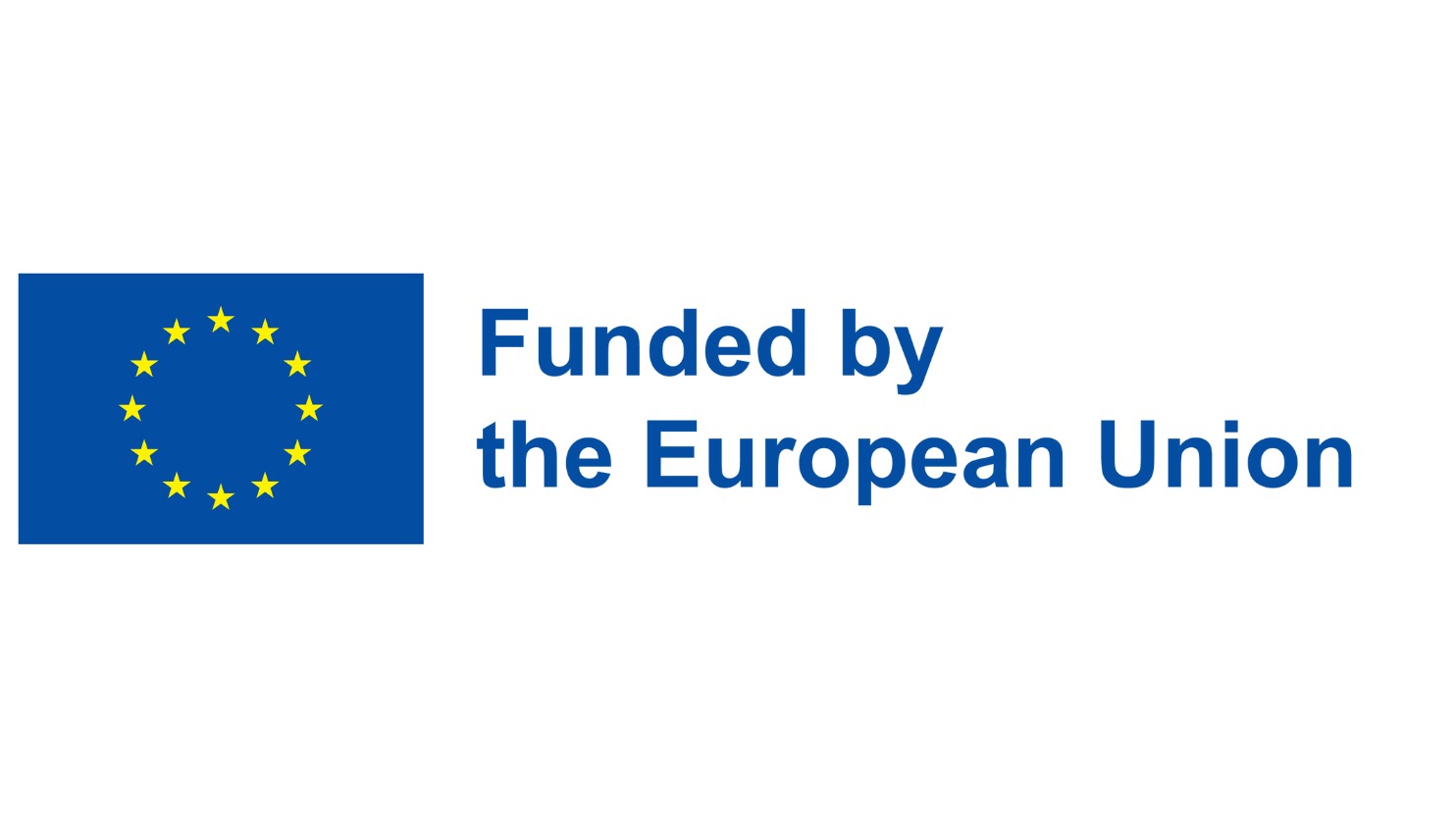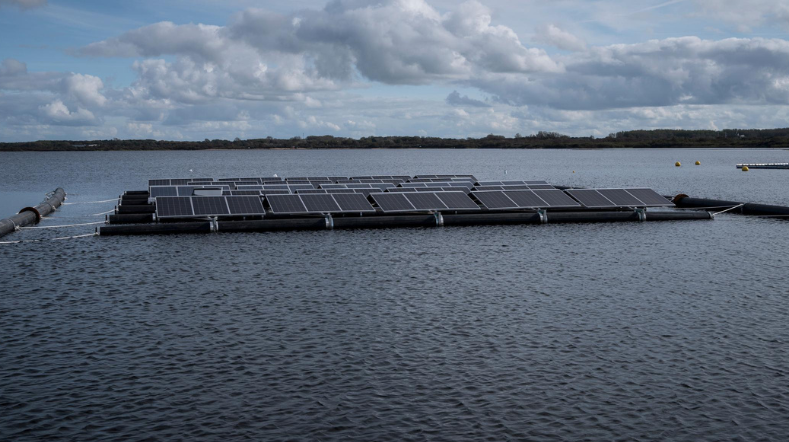Mass customization 2.0: integrated solar cells for the construction sector
Status project
2023 - 2026
In cooperation with
Consortium Mass customization 2.0 funded by the EU’s Horizon Europe programme
Solar laminates as a base material for building elements offer new, aesthetically pleasing opportunities to make the most of the electricity generating potential of the built environment. The TNO-led EU research project Mass Customization 2.0 (MC2.0) for integrated PV will enable the cost-effective, fully automatic integration of solar cells into building elements, stimulating an innovative PV industry in the Netherlands and Europe.

‘‘With this, we’re bringing the worlds of construction and solar energy a lot closer together. Not importing cheap mass production from Asia, but manufacturing innovative products on a large scale ourselves”.
PV in any shape and size
Mass Customization (MC) is a new photovoltaic (PV) manufacturing concept based on cleverly designed semi-finished products. The research line, designed by TNO and built by industry partners, will enable the manufacturing of a wide variety of PV products in any shape and size. These semi-finished products can then be incorporated into the products of construction and installation companies. There are also applications for infrastructure, such as in noise barriers along (rail)roads and in vehicles.
Next steps
Now that TNO has laid the foundations for this revolutionary manufacturing process, the next steps are being taken in a European context. A consortium of twenty parties has been formed. Besides TNO, this consortium includes research institutes and private-sector companies from Belgium, Germany, Italy, Austria, Switzerland, and the Netherlands.
The partnership is bringing the creation of a European industry with unique products one step closer. The parties have extensive experience in either developing and manufacturing equipment for PV modules or developing and manufacturing the PV modules themselves. In our country, the parties include VDL ETG, BMI Monier, Maan Glueing Technologies, BouwhulpGroep, Duflex Mechatronics, and TNO spin-off EnFoil.

Increasing efficiency solar cells
The MC2.0 project, funded by the EU’s Horizon Europe programme, mainly involves PV products made suitable for integrated application in pitched roofs, facades, windows, and venetian blinds.
TNO previously developed so-called back-contact solar panels, which eliminate the need for an electrical connection between solar cells at the front and back of the module, instead connecting the plus and minus poles at the back. This increases efficiency, while offering much easier and more flexible manufacturing options, allowing for wide-ranging shapes and sizes.
Visit the MC 2.0 project website
Suitable for any type of solar cell
‘We want to make this technology suitable for any type of solar cell. We call this being “cell agnostic” because we’re incorporating all existing cell technologies into our pilot line in an automated way. As a result, in a few years’ time, we’ll have a very broad scope for semi-finished products. This will give a huge boost to the construction and manufacturing industries. New parties (so-called “integrators”) will emerge to enter this market. Innovative products like these always lead to new business and jobs.’
Feasible and sustainable
Technological solutions are ‘only’ part of the story. Of course, they need to be cost-effective. TNO is therefore also looking into their economic feasibility. At present, their economic feasibility looks good. Integrating panels, which currently need to be surface-mounted, into semi-finished products will already reduce costs of solar power.
A third challenge is sustainability. TNO conducts life-cycle analyses (LCA) for the materials used to make conscious choices. For example, it may be possible to choose a slightly more expensive component which is better for the environment than the cheapest option.
To the museum
‘What makes the MC2.0 concept unique is that you can make solar laminates with all kinds of dimensions and electrical properties in one run. We have come a long way with this. Back-contact technology offers tremendous flexibility and enables the large-scale manufacturing of customised modules. This is a huge step forward. From simple panels from Asia to smart, PV products “made in Europe”. Our recently operational pilot manufacturing line will probably be in a museum in a few years, to be admired as the blueprint for new factories for integrated solar modules.’
Mass customization 2.0
The mass customization 2.0 project is funded by European Union's Horizon Europe research and innovation programme under Grant Agreement No. 10109613. Views and opinions expressed are however those of the author(s) only and do not necessarily reflect those of the European Union or Horizon Europe. Neither the European Union nor the granting authority can be held responsible for them.


Get inspired
Webinar: Solar energy in Brabant - Building a sustainable future for Europe


Carbon footprint floating solar energy systems similar to land systems


The next generation of solar technologies

Solar panel production back to Europe

TNO's view of 2030: using every surface for solar power generation




